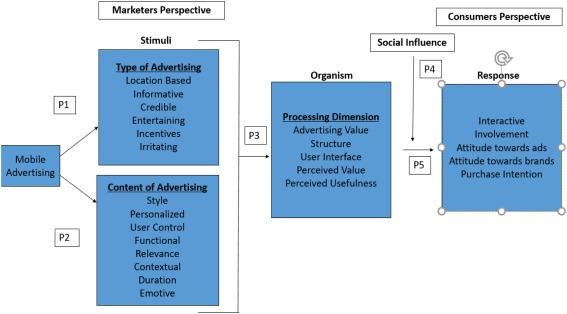Top skills and Responsibilities of a training and Support Coordinator: A Complete Guide
Are you interested in a dynamic career at the crossroads of education and technology? The role of a Training and Support coordinator is a pivotal position in universities, colleges, and schools as educational institutions transition to digital platforms and innovative teaching solutions. This comprehensive guide explains the top skills and core responsibilities required for success, practical tips to build your career, and the benefits of becoming a Training and Support Coordinator in the thriving field of education technology (EdTech).
Introduction: The Vital Role of a Training and Support Coordinator in EdTech
In today’s digital learning ecosystem, Training and Support Coordinators ensure that educators, administrators, and students can effectively access and utilize educational technology tools. Whether you are new to education technology or seeking advancement, understanding the crucial skills and day-to-day duties of this role is essential to excel in modern academic environments.
Who Is a Training and Support Coordinator?
A Training and Support coordinator in education technology designs,delivers,and assesses professional development and support programs related to educational software,learning management systems (LMS),and technological tools. They act as a bridge between IT departments,faculty,and learners,ensuring seamless adoption and continuous usage of technology across campuses.
Key Responsibilities of a Training and Support Coordinator
The responsibilities of this role can vary, but typically include:
- Training Delivery: Develop and deliver engaging training sessions for faculty, staff, and students on EdTech platforms, tools, and applications, both online and in-person.
- Technical Support: Provide timely troubleshooting, problem resolution, and ongoing user support for educational technologies and digital resources.
- Resource Development: Create user guides, tutorials, FAQs, and multimedia content to support technology adoption.
- User Assessment: monitor and assess user proficiency, gathering feedback to improve training materials and support strategies.
- liaison work: Act as a communication link between end-users, IT teams, and administrators, ensuring clear and consistent messaging regarding technology updates and best practices.
- Reporting and Documentation: Maintain records of support requests, user issues, and training sessions for ongoing evaluation and improvement.
- Continuous Professional Development: Stay updated with emerging EdTech trends, new software releases, and pedagogical innovations.
- Change Management: Support users during updates or technology rollouts, minimizing disruption and fostering a positive adoption process.
Top Skills Required for a training and Support Coordinator
Aspiring candidates should focus on developing both technical expertise and interpersonal abilities for maximum impact:
1. Technical Proficiency
- Strong understanding of learning management systems (such as Canvas, Moodle, or Blackboard).
- Familiarity with classroom technology, including smart boards, assessment tools, and collaboration software.
- Knowledge of troubleshooting basic hardware, software, and internet connectivity issues.
- Ability to adapt to new systems and technology platforms rapidly.
2. Communication Skills
- Clear, concise verbal and written communication tailored to diverse audiences.
- Active listening to accurately identify user needs and concerns.
- Public speaking skills for delivering engaging face-to-face and virtual training.
3. Instructional Design abilities
- Experience creating effective training materials,presentations,handouts,and instructional videos.
- Understanding of pedagogy, adult learning theory, and best practices in teaching with technology.
4. Problem-Solving and Analytical Thinking
- Ability to assess issues quickly and provide practical,user-kind solutions.
- Assess user digital fluency and adapt support accordingly.
5. Organizational and Time Management Skills
- Effective coordination of multiple training sessions, projects, and simultaneous support tickets.
- Attention to detail when maintaining documentation and following up with stakeholders.
6. Customer Service Mindset
- empathy and patience when supporting users struggling with new technologies.
- Dedication to delivering a positive user experience at all touchpoints.
7. Teamwork and Collaboration
- Work well with IT staff, academic leaders, and peer coordinators to achieve institutional goals.
- Contribute to a culture of innovation and continuous improvement in EdTech initiatives.
Benefits of a Training and Support Coordinator Career in edtech
A position as a Training and Support Coordinator offers a fulfilling and impactful career in education technology. Key benefits include:
- Professional Growth: Constant learning through exposure to the latest educational technologies and methodologies.
- High Demand: The increasing reliance on digital education ensures strong job security and advancement opportunities.
- Meaningful Impact: directly support faculty and students,enhancing teaching and learning experiences across institutions.
- Variety: Every day presents new challenges, from developing creative training to troubleshooting real-time issues.
- Transferable Skills: Build abilities that are valuable across the education, technology, and corporate training sectors.
How to Become a Triumphant Training and Support Coordinator: Practical tips
Ready to secure your future in education technology? Here are expert tips for aspiring Training and Support Coordinators:
- Get Certified: Consider certifications in instructional technology, e-learning, or EdTech platforms (such as google for Education or Microsoft Certified Educator).
- Gain Experience: Volunteer for campus committees, IT help desks, or tutoring labs to develop hands-on support skills.
- Build a Portfolio: Showcase sample training materials, recorded webinars, or case studies demonstrating your impact.
- Network: Join edtech professional associations or online educator communities to stay current and connect with mentors.
- Refine Presentation Skills: Practice both virtual and in-person public speaking. Engage your “students” through interactive elements and relatable examples.
- Stay Curious: Embrace lifelong learning. Continually experiment with new apps, digital tools, and instructional methods.
conclusion: embracing the Future of Learning as a Training and Support Coordinator
The role of a Training and Support Coordinator in education technology is more vital than ever as universities, colleges, and schools modernize their teaching and learning environments. By mastering the top skills and embracing key responsibilities outlined in this guide,you will empower educators and students alike,foster innovation on campus,and enjoy a rewarding career at the heart of EdTech. if you are passionate about technology, education, and helping others succeed, this path may be your perfect fit.

